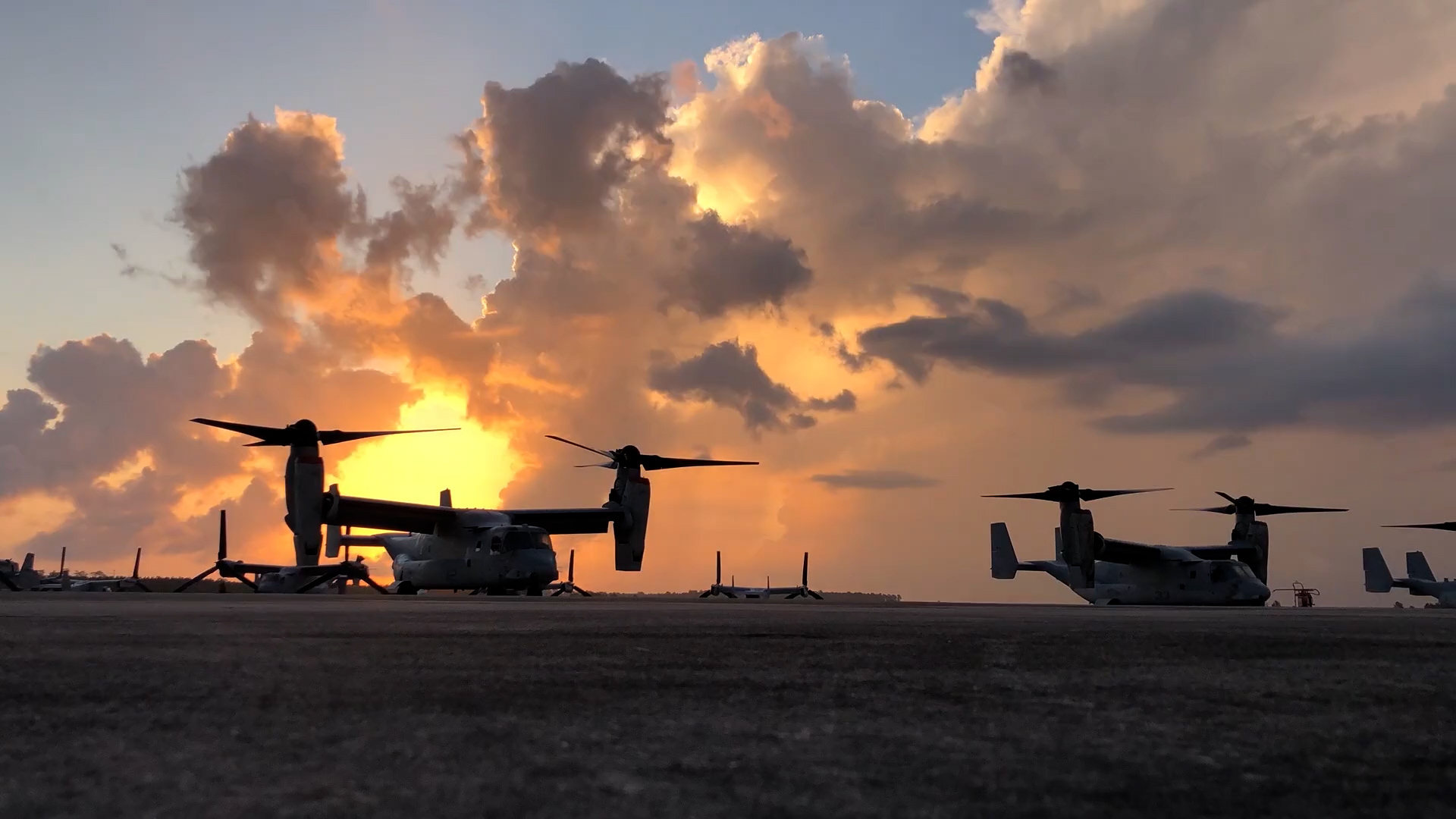
Ryan Robertson
THIS RECORDING MARKS THE 40TH EPISODE OF ‘WEAPONS AND WARFARE’. AND THOUGH WE HAVEN’T BEEN AROUND FOR A PARTICULARLY LONG TIME, THERE’S ONE STORY WE’VE FOLLOWED ALMOST FROM THE START. THE V-22 OSPREY. AND THIS WEEK, WE HAVE AN UPDATE.
SINCE MARCH 2022, THE PROGRAM SAW FOUR CRASHES AND THE LOSS OF 20 AMERICAN SERVICE MEMBERS. MOST RECENTLY, WAS LAST NOVEMBER, WHEN A CREW OF 8 AIR FORCE AIRMEN LOST THEIR LIVES IN A V-22 CRASH OFF THE COAST OF JAPAN.
THAT CRASH, AND THE STRING OF CRASHES BEFORE IT, PROMPTED A SERVICE-WIDE STANDOWN OF THE OSPREY AS THE INVESTIGATION INTO THE NOVEMBER 2023 CRASH MOVED FORWARD.
THE EXAMINATION FOUND THE CRASH, AT LEAST IN PART, WAS CAUSED BY A “CATASTROPHIC FAILURE” IN ONE OF THE AIRCRAFT’S GEARBOXES. IN MAY, THE AIRCRAFT WAS ALLOWED TO FLY AGAIN, BUT ONLY WITHIN 30 MINUTES OF AN ALTERNATE LANDING SITE.
BUT THERE ARE SIGNS OF PROGRESS.
NOW IT LOOKS LIKE THE AIRCRAFT WILL BE DEPLOYED ONCE AGAIN, ALBEIT WITH THE SAME RESTRICTIONS IN PLACE. THAT’S THE WORD FROM THE NEW COMMANDER OF THE AIR FORCE SPECIAL OPERATIONS COMMAND, LIEUTENANT GENERAL MICHAEL CONLEY.
Lt. Gen. Michael Conley, Commander, USAF Spec. Ops. Command
“We’re about 60% of the fleet that’s returned to flying. We’ve got about the same number of air crew that are return returned fully. We’ve had a crawl, walk, run where, you know, we’ve kind of pyramided this with we had to get our instructors and evaluators requalified and back up to speed quickly. And then as they went through and became fully mission ready again, we trickled that down into CO pilots and in the others in the squadron.”
Ryan Robertson
WHILE GENERAL CONLEY WOULDN’T SAY WHERE THE OSPREYS WOULD BE DEPLOYED, HE DID CONFIRM IT WOULD NOT BE TO EUROPE OR THE INDO-PACIFIC. SPEAKING AT THE AIR, SPACE, AND CYBER 2024 CONFERENCE IN SEPTEMBER, HE DID SAY HE WAS HAPPY WITH THE CURRENT STATUS OF THE PROGRAM.
Lt. Gen. Michael Conley, Commander, USAF Spec. Ops. Command
“We grounded the fleet for the right reasons, based on the evidence we had at the time and during the during the grounding period, we just learned other thing. I mean, we had the opportunity to reflect on the whole program, and what kept us grounded is not necessarily what got us grounded in the first place. So as we’ve gone through, you know, the whole program, and looked at each aircraft, specifically, gone through all the parts just to make sure the bookkeeping was tight, it’s just taken time. We’ve been very deliberate and slow and methodical to make sure that we use that time wisely to bring us back up to speed.”
Ryan Robertson
AS ONE OF A HANDFUL OF AIRCRAFT THAT ARE USED BY MORE THAN ONE BRANCH OF SERVICE, CONLEY SAYS THE STAND DOWN ALSO PROVIDED AN OPPORTUNITY TO BUILD ON THOSE INTER-SERVICE RELATIONSHIPS AS EVERYONE INVOLVED WORKED TO GET THE V-22s BACK IN THE AIR.
Lt. Gen. Michael Conley, Commander, USAF Spec. Ops. Command
“I would suggest right now that sometimes there’s opportunity that comes out of crisis in the relationship we have right now with NAVAIR, the Marine Corps, PMA, 275, and general Richardson’s team at AFMC is probably as strong as it’s ever been. We as we look to what the future moves need to be, as we look to keep the V 22 fleet rich, the DoD V 22 fleet relevant for decades to come, the partnerships have gotten stronger.”
Ryan Robertson
IN TERMS OF GUIDANCE FOR CREWS THAT MAY POTENTIALLY FACE THE SAME ISSUES WHICH CONTRIBUTED TO THE NOVEMBER 2023 CRASH, GENERAL CONLEY SAYS THERE ARE NEW SAFETY PROCEDURES IN PLACE. PILOTS ARE NOW ADVISED TO LAND AFTER A SECOND WARNING ABOUT METAL FRAGMENTS IN THE OSPREY GEARBOX. PREVIOUSLY THE STANDARD CALLED FOR THREE WARNINGS BEFORE A MANDATORY LANDING.
Lt. Gen. Michael Conley, Commander, USAF Spec. Ops. Command
“You know, at the end of the day, there will always be aircraft commander and crew discretion. It’s the nature of what we do. The you know, the environments are unique depending on where we fly and what we’re doing, but we have tightened up the guidance to try to take less ambiguity, to create make it less ambiguous to the crews up there.
Ryan Robertson
IN JUNE, U-S NAVAL AIR SYSTEMS COMMAND CHIEF VICE ADMIRAL CARL CHEBI TOLD A CONGRESSIONAL HEARING THE OSPREY WON’T RETURN TO FULL-FLIGHT STATUS UNTIL SOMETIME IN 2025.











